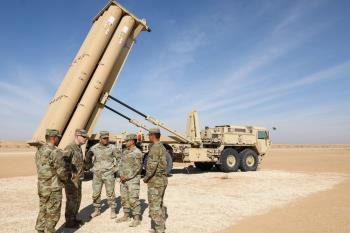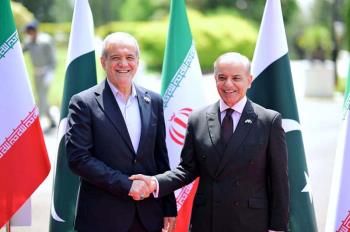Alwaght- Following the fresh uprising of the Palestinians in the West Bank and the eastern al-Quds (Jerusalem), the Israeli regime has once again faced political and security challenges in the occupied territories, as it has gone under international pressures on the other side.
Just like two previous Intifadas (uprisings), the current wide-ranging Palestinians’ Intifada has its own internal and external grounds, which include:
1. Inclusive Popular support: the emergence and development of any phenomenon like a general uprising is highly dependent on the popular advocacy in different dimensions, and this is a principle adoptable on any political ideal. Now with the Palestinians’ thorough support, the Intifada has found appropriate backgrounds to grow.
2. Active participation: in political terms, the emergence of such a significant development as a general Intifada needs formation of a process to upgrade the popular support to active participation of people and the Palestinian groups. The people’s partaking in the issues pertaining to them makes the basis for rise of a general popular participation, which comes in a spontaneous or a mobilized form. The general uprising needs two forms of participation. The spontaneous involvement is related to the general culture but the mobilized form of engagement in the uprising needs intensive media activities of the different Palestinian groups as well as the Islamic countries. In Palestine, presently, a public involvement in the uprising is observable, which gathers together people from all walks of life including women and children, young and old people, the clerics, traders and the clerks, who are being activated in the form of anti-Israeli resistance.
3. Increase of extremism among the Israelis: in recent years, the extremist Zionist ideologies have seen a growing trend among the Israeli settlers, especially as a result of persistent insecurity, economic crisis and the propagandistic activities of extremist groups in the occupied territories. In recent years, the Israelis have tended to favor the right-wing and extremist parties like Likud party, an issue paving the way for more confrontations between the Muslim and Jewish communities in the occupied Palestinian territories.
4. Growth of unprecedented violence by Israelis: one of the other factors giving rise to the Palestinian Intifada is the unprecedented rate of violent actions against the Palestinians. Although the Israelis always use violence in dealing with the Palestinians, the violence sometimes shows a remarkable increase, in a way that the media regularly depict the Israeli brutalities which include firing live bullets at the unarmed protesters, cruel storming of the Palestinians’ homes and setting fire to them.
Despite all of the grounds motivating the formation and duration of the uprising, there are serious obstructions which could any time block its growing stream or slow it down:
1. Palestinians’ internal discords: one of the cases which has always represented a hurdle in front of the Palestinian intifada is internal differences among the Palestinian leaders and groups, especially that there is a group among the Palestinians which, because of enjoying extensive ties with the West and the Israeli regime, at the start of the road of the popular uprising tries to blend in with it to secure its own interests and privileges. However, after gaining its interests, the group stirs conflicts between the other Palestinian groups. Consequently, people are discouraged to move on in their course after seeing the disputes between the political movements and leaders.
2. Absence of cohesive and certain strategy: any political development like the Intifada needs a definite and united strategy in order for it to roll on and reach a conclusion. Although Hamas and Islamic Jihad movements have always set their strategy on escalating the resistance wave and increasing participation in the uprising, and the resistance media also try so much to keep the uprising standing, there is no collective and specific pathway among the different Palestinian groups. The resistant fractions need to cooperate and coordinate more to set up the uniting strategy.
3. The Israeli seditions: The divisive activities of the Israelis done by the Tel Aviv’s security and spying agencies are another hurdle endangering the Palestinian people’s nation-wide Intifada. The Israeli intelligence and spying agencies, Mossad and Shabak, also known as Shin Bet, have a long record of spying and anti-spying activities, as they have specialized security staff. Using their wide-ranging media and spying networks, the Israeli intelligence organizations have spread their activities deep among some Palestinian leaders and groups. In case of negligence, they could set an obstacle ahead of Intifada. Therefore, the Palestinians need to watch the developments with great care.
4. Lack of Muslim world’s comprehensive support: generally, such big developments as Intifada must be backed up by foreign governments. The aids could consist of diplomatic backing in regional and international organizations, providing the involved groups with financial and arms support, and supplying them with basic and strategic equipment. Although already backed up by independent countries like the Islamic Republic of Iran and Syria, the Palestinian Intifada needs a greater support of Muslim states especially Arab countries like Saudi Arabia, Egypt, and Jordan. But, in recent years these three countries have shown a passiveness concerning the Palestinian cause.
5. Not focusing on the Palestinian cause: after growth of the armed takfiri groups inside the West Asian countries in recent years, a great deal of the Palestinian potentials such as manpower and operational force, rather than serving the Palestine’s case, have been employed to hit the Islamic and Arab countries.
It is observed that the militant groups and some of the regional countries recruited the Palestinians, involving them in Syria and Iraq wars, while the Palestinians need to avoid infighting and concentrate on Palestine to liberate the Islamic land as soon as possible.


























